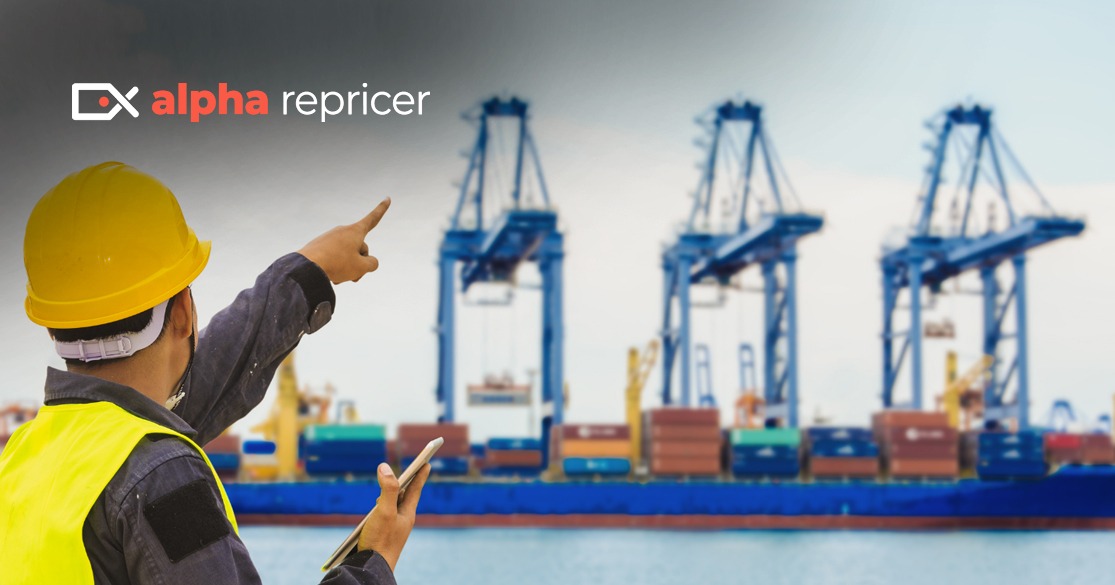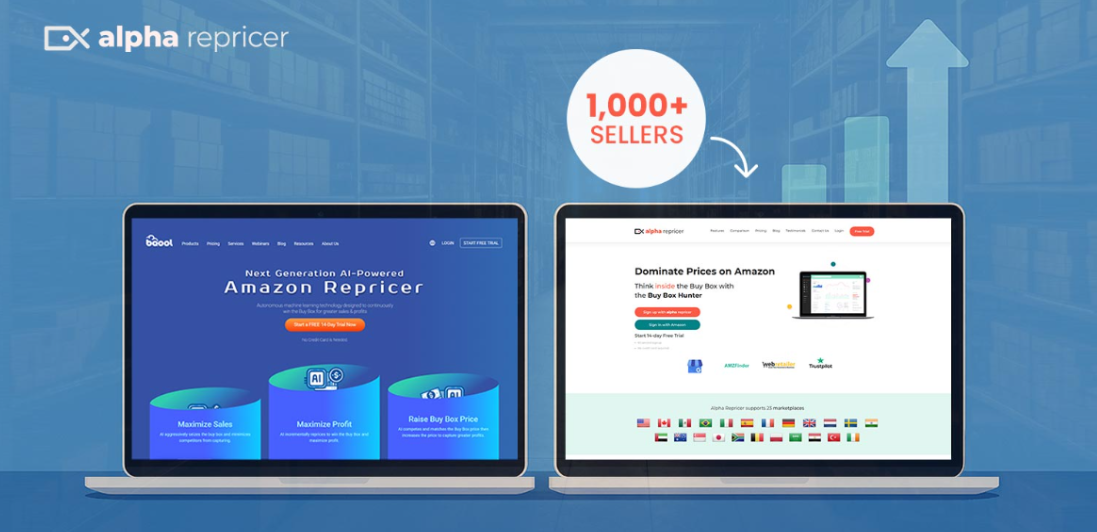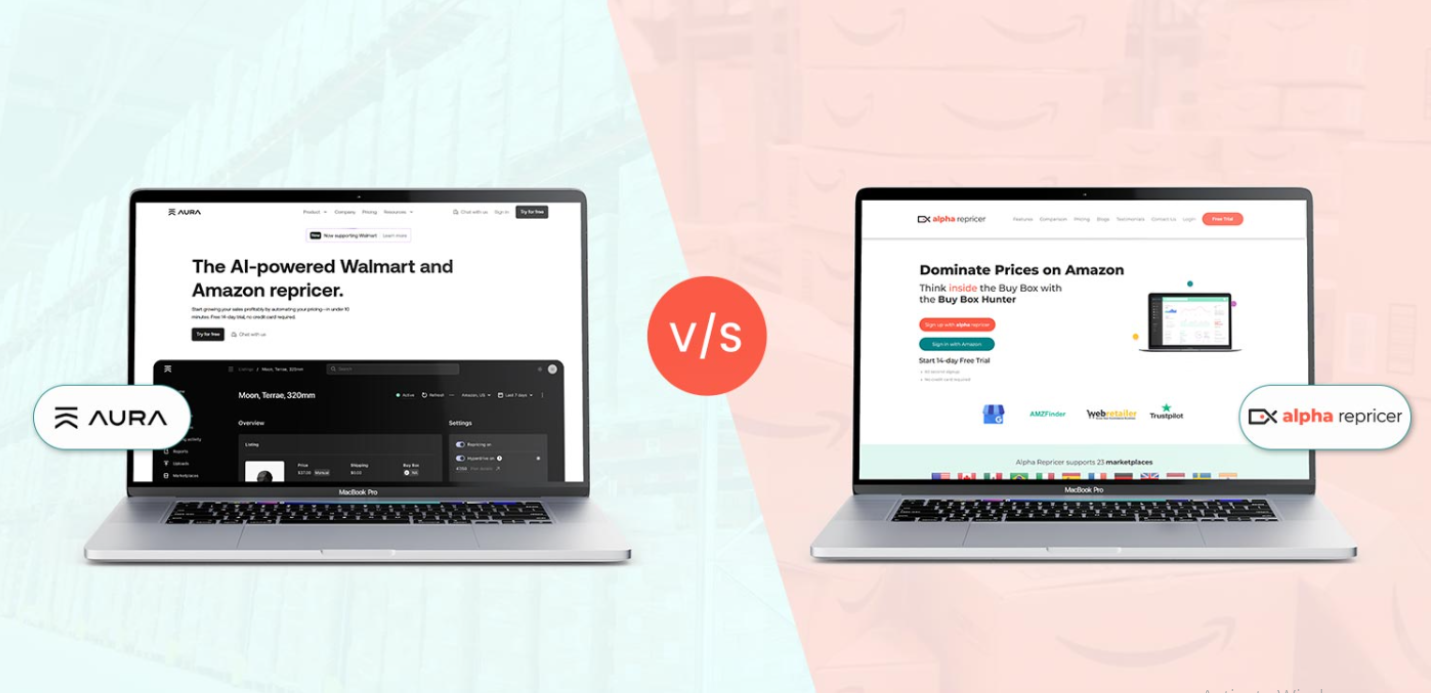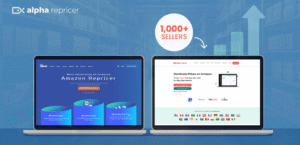Amazon sellers need to focus on many different business areas while selling their products on Amazon. That includes sourcing, marketing, repricing, storing, packaging, and, of course, shipping. More and more Amazon sellers are sourcing from across the world, from places like China, Turkey, and Pakistan. To do so, they need to understand various trade practices and all the legal terms to avoid potential disputes regarding insurance, freight, and customs clearance.
These internationally recognized shipping terms help define all the responsibilities related to product delivery and transportation.
This blog will examine the top key shipping terminologies that Amazon sellers should know. According to us, understanding these terms is necessary to understand your responsibilities as a seller, learn about the paperwork, and get familiar with the abbreviations that might sometimes fly right past you!
Let’s begin!
Table of Contents:
- Ex-Works
- Supplier
- Freight Forwarder
- Free on Board (FOB)
- Free Carrier (FCA)
- Delivered Duty Paid (DDP)
- Bill of Lading
- RFQ
- Cost, Insurance, and Freight
- Conclusion
1. Ex-Works
The term “ex-works” refers to the responsibility of the supplier to make the items available at their warehouse, plant, or factory. The seller’s responsibility is fulfilled once the goods become available at the warehouse.
After that, you, as the buyer, have to collect all the goods from the warehouse and get them cleared via customs. It is also under a buyer’s responsibility to take care of all the administrative work related to the export. As a result, the supplier is only obligated to the bare minimum in this contract. The buyer is responsible for handling and paying for the customs, clearance, logistics, and insurance for international transportation.
2. Supplier
A supplier is a company that supplies products and services to other companies. This entity is a member of a company’s supply chain and provides products in bulk quantity once ordered. Many suppliers also supply goods through drop shipping, which involves sending products directly to the buyer’s customers. Wholesale suppliers buy goods in bulk from various manufacturers and wholesalers and then sell those products to Amazon sellers. A supplier can also be the manufacturer.
These days, shopping platforms like AliExpress and Alibaba are goldmines for Amazon sellers. They’re simple to use, and you can find many suppliers to order your products in bulk. However, Amazon is also an excellent place to look for suppliers. Our advice would be to look up the names of the most popular ones, check out their star ratings, and try them.
Regarding Amazon sellers and shipping, here’s a blog post you can visit for order fulfillment solutions. Check it out!
3. Freight Forwarder
This term might be new, but let us help you understand it. A freight forwarder is basically an agent who is responsible for moving your goods on your behalf to the shipping port. The agent is responsible for getting your products from the warehouse and taking them to the port. The freight forwarder needs to make sure that the products are safe from the time they are picked up from the supplier until they are delivered to the location specified by you.
In summary, a freight forwarder is a business that receives and transports commodities on behalf of other businesses. Sellers pay freight forwarders to pick up their products from suppliers and deliver them to the port.
UPS Supply Chain Solutions, Maersk, DHL Supply Chain, Global Forwarding, DB Schenker Logistics, and Kuehne + Nagel are all common freight forwarders for e-commerce sellers. If you are looking for some smaller freight forwarders, it is essential to check out their references.
4. Free on Board (FOB)
The term “Free on Board” refers to the supplier’s responsibility to deliver the goods to the originating port and onboard them. After the products are loaded, the risk and cost of the cargo are transferred to the buyer from the supplier. On the other hand, the supplier must arrange whatever’s necessary for export clearance. After that, the responsibility for the cargo goes into the hands of the buyer. The buyer is responsible for paying for the freight transport, insurance, bill of lading, as well as unloading.
5. Free Carrier (FCA)
Free Carrier means that the supplier is responsible to deliver the goods- either to the carrier of the buyer or to another person/party that the buyer mentions. The supplier also has to care for the customs and get the goods cleared for export. Moreover, the supplier is in charge of the cargo’s transportation until it arrives at the designated delivery location.
The loading and unloading requirements at the delivery location should be clearly defined by the two parties. This will clear who loads the cargo onto the truck of the seller and who unloads the goods from the transportation of the supplier. In this type of transaction, the seller is liable for all the transportation fees and assumes all the risk of damage to the products.
6. Delivered Duty Paid (DDP)
Delivered Duty Paid (DDP) indicates that the supplier is responsible for delivering the cargo to a predetermined location in the seller’s country. It is the responsibility of the supplier to bear the cost of the products’ international freight transportation to this location. The supplier also has to take responsibility for clearing exports at the port of departure and passing imports at the port of arrival. This implies that the supplier is in charge of clearing customs in the country of the buyer. Furthermore, the supplier is responsible for all the taxes and import fees. Throughout the process, the supplier has to make sure that the goods are safe until they are delivered to the buyer. In short, DDP imposes most of the obligations on the supplier and the least obligations on the buyer.
7. Bill of Lading
A bill of lading can be defined as a legal, formal document issued to a shipper by the carrier that specifies all the necessary details regarding the goods such as the kind, quantity, and delivery information. It is a receipt for items sent, which serves as a contract between the carrier and the shipper. The document shows that the goods have been transferred from the carrier to the shipper. It mentions all the terms of the contract and the title of the goods.
8. RFQ
Request for quotation is when a business, company, or in our case- an Amazon seller reaches out to a supplier and requests a quote for the purchase of goods or services. The process of RFQ is quite similar to ‘Invitation for bid’ or ‘Call for bids.
When a corporation issues an RFQ, according to our research, they are merely requesting quotes from suppliers for the goods or services they require. The suppliers need to submit their pricing and then the seller decides if they want to do business with the specific supplier.
9. Cost, Insurance, and Freight (CIF)
The term CIF ‘Cost, Insurance, and Freight’ refers to the supplier’s responsibility for transporting the products to the port and is also in charge of the insurance for the cargo while it is in transit. Moreover, the supplier is also responsible to clear the goods for export. CIF is different from CFR (Cost and Freight) which requires the buyer to cover freight insurance. However, in both cases, the risk of any harm to the goods while in transit remains with the supplier.
In conclusion,
It is important for Amazon sellers to understand all the necessary shipping terms to order and ship out their products easily. We hope we’ve covered all the necessary shipping terms that Amazon sellers must know about in this article. Keep following for more informative blog posts.
Author
-
Noor Jarri
Meet Noor Jarri, a seasoned writer specializing in the dynamic world of Amazon. With over three years of experience, Noor has become a trusted resource for Amazon sellers seeking guidance on repricing strategies and navigating the e-commerce landscape.
As a valued contributor to Alpha Repricer, Noor's expertise shines through in her engaging blog articles, press releases, and guest posts. Praised for her skill in crafting content that is both informative and approachable, Noor's writing is a knowledgeable resource for sellers of all levels.
Beyond her professional pursuits, Noor is an avid traveler and culinary enthusiast. She finds inspiration in exploring new destinations and experimenting with recipes from around the world.Join Noor Jarri on her journey as she continues to empower Amazon sellers with insights, tips, and strategies to thrive in the ever-evolving marketplace.







